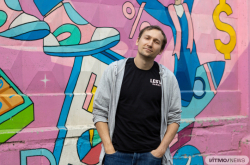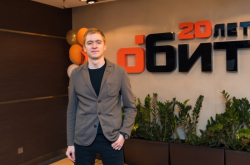From crafts to IT solutions
I studied at a physics and mathematics lyceum in a small town near Gatchina and often participated in high school contests. I loved these subjects and was eager to continue to grow in these fields, so I decided to apply to a technical university in St. Petersburg. There wasn't a lot to choose from: there was St. Petersburg Electrotechnical University “LETI” (I frequently went there for school contests), St. Petersburg State University of Aerospace Instrumentation, and ITMO University, which was gaining popularity at that time – and it didn’t escape me. The program that I was most thrilled about focused on automation and control. I immediately imagined myself in this field and opted for ITMO.
Back then, I knew little about IT – it felt like magic but it was real. All these PCs with Intel Celeron processors, the PROMT translator still in its embryonic stage, online bots and information at your fingertips made up an entire universe that got me excited.
Yet I didn’t get into IT till later. As a student, I worked in the souvenir business. I purchased wooden blanks and other materials for matryoshka dolls and made sure they were timely delivered to painters and varnishers, so that I could later transport the finished products to stores and museums in St. Petersburg and Leningrad Oblast.
But it was a fluctuating business, because winters meant fewer tourists – and hence fewer sales. So, as I graduated in 2013, I got a job as a technical support specialist at Timeweb. At first, I thought this was a temporary solution and I would go back to souvenirs as soon as possible. But when I tried to, everything that could go wrong went wrong. I purchased way too many products and couldn’t sell much because a good share of them were defective. Worse still, the website of our store fell off the first search results page due to the change in search policies, making it harder for users to find it.
So I had to stay at Timeweb and eventually became a manager of technical support. Within seven years of my service there, I managed to work on a range of products, always opting for the most complex yet exciting projects that I saw as personal challenges. This is the approach I follow at each company.
For one, I worked on a virtual dedicated server (VDS) for Timeweb. Unlike with other platforms, the computer power of virtual servers can be aligned to one’s needs, for instance, by increasing or reducing the amount of RAM space. The system’s flexibility allows websites to run smoothly even with huge traffic with no fear of slow loading speed or website breakdown.
Here’s an illustration of my words. Imagine, several thousands of old ladies would make a page on how to make pickles at home on one hosting. It may hold all right, unless each of them decides to launch their own marketplace with homemade products – then, the hosting will have an overload. And this is when a virtual server may come to the rescue.
Then, I carried on with online services but now as part of the VkusVill company where we built a delivery platform with various options, including express and remote area delivery.
I’ve gained diverse experiences at these companies. At Timeweb, I realized that I enjoy managing IT teams (product managers, software architects, and technical writers) – and I went on to develop in this field. Whereas VkusVill gave me the feel of what it’s like to be in an inspiring environment. Just imagine over 20,000 employees, from cashiers and delivery workers to managers, are passionate about an idea and are in sync to make it happen. That’s something!
Read also:
New Master’s Program by ITMO and VK to Train Web Service Developers
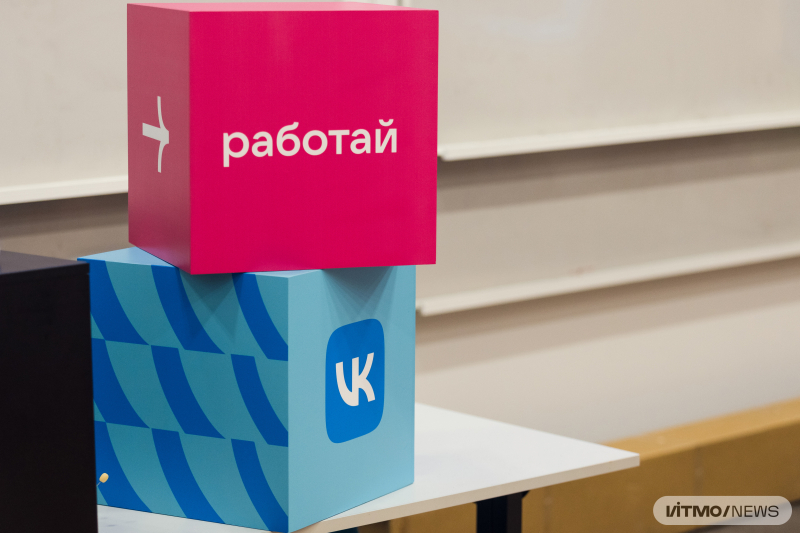
At a VK expert’s lecture at ITMO. Photo by Dmitry Grigoryev / ITMO.NEWS
How to make a one-size-fits-all product
Getting a job as the head of product management at VK Cloud in 2021 was the next logical step for my career. When I was at Timeweb, I focused on hostings and servers and developed internal services and information systems for small businesses. At VK Cloud, I grew to solve the tasks of larger businesses and work with more powerful computing systems, like cloud technologies.
When I joined the team, the company had been in the field for over five years. With cloud services, users can efficiently and quickly perform a number of tasks, be it creating databases for big data, managing IT infrastructure, or developing apps with built-in speech recognition and synthesis features into these apps.
With time, the company began to receive more and more requests for private clouds, but it wasn’t an easy feature to implement. The issue was that while public clouds need regularly updated services, private clouds have to be tailored to the needs of each particular company. Moreover, the latter need to be installed on the company’s equipment and meet safety criteria that vary from company to company and field to field. Some may need a feature to control their employee’s computers, whereas others want to have different access levels.
This prompted us to create a single product that could become a one-size-fits-all solution for various companies – the one that had handy tools and could be installed in one click.
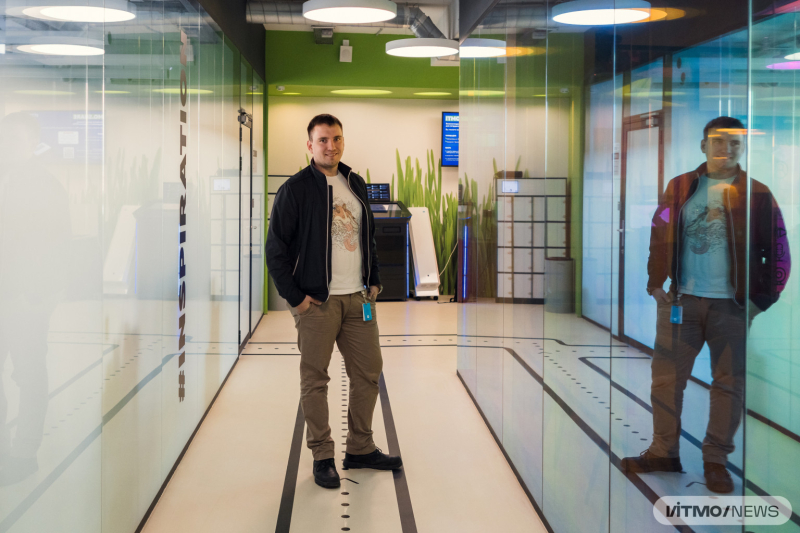
Viktor Konoplev. Photo by Dmitry Grigoryev / ITMO.NEWS
First, we had to settle on core components, identical for both public and private services, and then wrote an installer that would unpack a different set of solutions depending on the cloud type. It may sound simple but this was worth a year of constant discussions on customer needs, possible features, as well as debates on which team will take on the tasks and when the work should be complete.
I always try to aim for win-win solutions between businesses and teams. On the one hand, I need to manage my team and maintain team spirit when it’s needed but on the other, as a leader, I need to protect my team, no matter how badly we’ve failed, and help them concentrate on the tasks. To do so, I have meetings with my colleagues several times a week to talk through our monthly goals and weekly tasks, as well as choose our top priority.
Our service is popular among major Russian companies, including the automobile manufacturing company AvtoVAZ. Thanks to private cloud-based solutions and online services, their data is well protected, and users can create their digital products faster.
The server may find use in retail, as well. For instance, if a company wants to install a coffee vending machine, they need to first write an app and then test it to check if transactions go through successfully. There are several ways to do that. The first option is to take advantage of the company’s internal computing powers, yet it might take several days before you gain access and control over development resources.
Alternatively, you can run with the powers of your own cloud. Thus, you can get started right away as you already have all the tools and access rights in your hand. A company's speed on the market determines its profit: the first one to release a product gets the most money.
Read also:
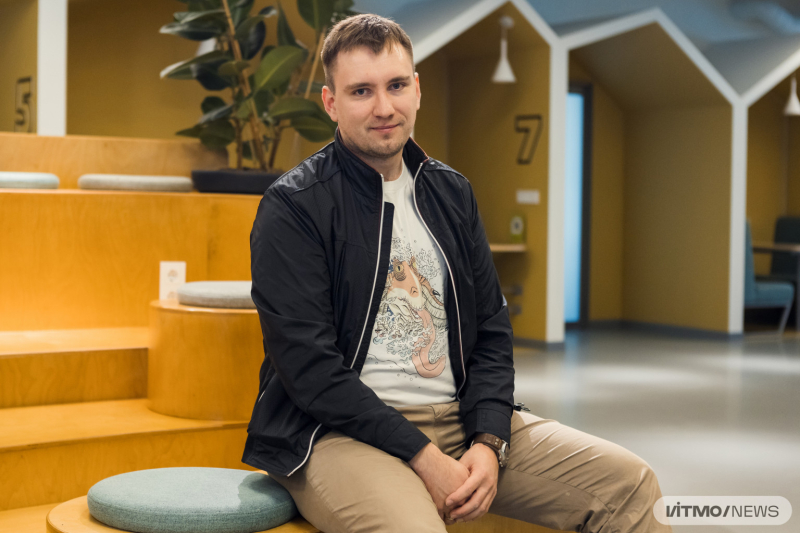
Viktor Konoplev. Photo by Dmitry Grigoryev / ITMO.NEWS
Where are the IT clouds heading?
Cloud computing has been around for over 30 years – and it went through several stages. The first one was Infrastructure as a Service (IaaS) that gives users access to resources and lets them launch digital and other IT infrastructure on their own. Then, Platform as a Service (PaaS) made it possible for users to rent ready-made platforms and apply a set of tools, such as a database management system, machine learning, or big data processing, to build their apps. Now is the time of Software as a Service (SaaS) – software licensing for multiple purposes, such as emailing, client database management, and website development.
Simplification is the trend. Nowadays, we can create websites using platforms, like Tilda, and design apps with the help of low-code development tools. The same, perhaps, will be true for cloud computing at some point. One day, SaaS will grow so much that there’ll be no need for any other models. But we should keep in mind that the simpler a technology gets for users, the more complex it becomes under the hood.
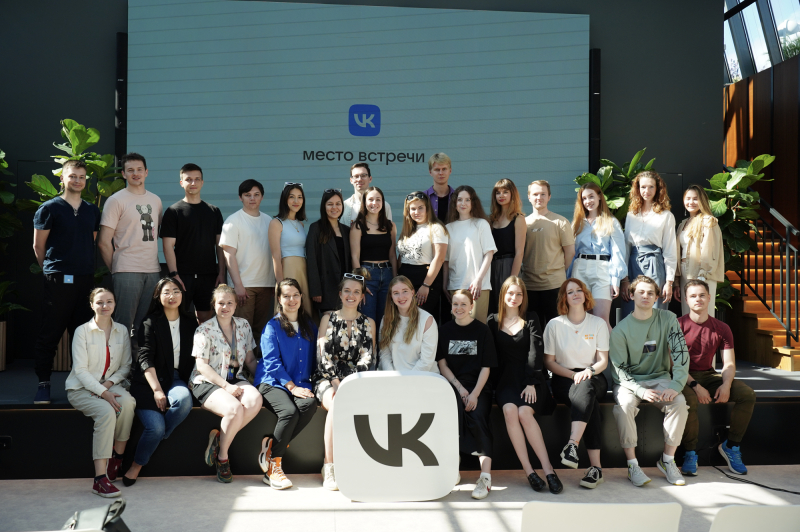
ITMO’s top graduates’ reunion at VK. Photo by Tatiana Voropaeva / ITMO Mediaportal



